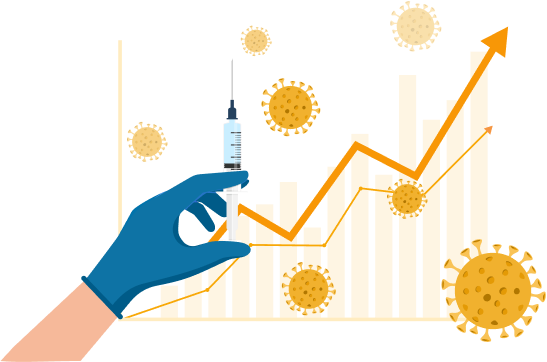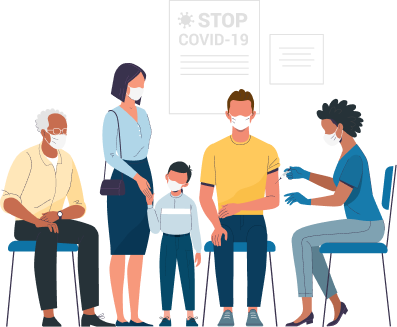 Blog posts
Blog posts
Using "social nudging" to improve vaccination rates.
Behavioral science provides a powerful toolkit for vaccine marketing and adherence programs. Newristics
Newristics
 22 April 2021
22 April 2021
Optimize Pharma GTM communications
Innovative messaging market research
Analyze messaging with algorithms
Source for pharma insights and updates
Pharma's top behavioral science source
 Newristics
Newristics
 22 April 2021
22 April 2021

The COVID-19 pandemic has shown how much we have come to rely on medical technologies—notably, a vaccine. Humanity has made many successful, safe vaccines in a historically record time of under a year. But developing a vaccine was only the first step. Taking the vaccine is an equally important second step. While most people seem motivated to get the vaccine, some aren’t. Skepticism, lack of awareness, lack of opportunity, logistics, higher priority engagements, etc., are commonly cited reasons not to get inoculated when the opportunity comes.
If you are motivated to get the vaccine, you can help nudge motivated albeit, undecided family and friends to take action and book a vaccine appointment. That would enable a higher percentage of the partially motivated population to vaccinate. Kevin G. Volpp, George Loewenstein, and Alison M. Buttenheim, in their opinion paper, recommend a few strategies to enable smoother vaccination drives and improve uptake. Here are modified versions of those strategies to motivate family and friends to successfully complete the vaccination process.

The Availability Heuristic is our brain’s basic decision-making strategy that relies on the most readily available bits of information to make decisions or evaluate scenarios. If someone in your family or circle of friends acts as a trusted source of information, that person can make the most important information a part of day-to-day conversations in a non-forceful way. This information will likely remove the hurdles that come from a lack of awareness.
Share vaccination stories of celebrities and influencers who they like
Humans tend to follow those in positions of authority without hesitation. That’s Authority Bias at work. When people watch influencers book an appointment or upload vaccine selfies, they may unconsciously want to follow them, simply because they look up to those celebrities.

We also let our positive impression of those in positions of power spill over to other characteristics. That’s Halo Effect at work. If we like a person or think they are smart or good-looking, we may assume they are just as favorable in other aspects such as decision-making and giving health advice. No harm in sharing pro-health stories from liked and respected people, right?
People often tend to lose motivation when they don’t anticipate a tangible “reward.” Even if a friend isn’t a vaccine skeptic, they may not be inclined to take action. In such cases, behavioral contingencies can help. For all essential steps in the vaccination process, a group of friends can allow themselves a reward. For example, a friend could suggest, “Let’s all book our appointment today, and then we can do a movie marathon.” The appeal of rewards can increase as more people from a group get vaccinated.
We have 3 levels of identity. The first level is called the relational independent self-construal, which describes our profession or personality. The second level is the relational interdependent self-construal which describes our relationships. The final level is the meta-personal self-construal, which describes how we relate to things larger than our close relationships, like nature, culture, society, a spiritual point of view, etc.
Aligning with the greater good or moral/spiritual obligation toward society is a meta-personal level of identity. It is a powerful force to engage in behavior that affects a whole community positively. If people are led to focus on their part in society and how they are “collectively” a single unit, it will bias them to act as a group through the Bandwagon Effect - a tendency to do what the majority are doing. Ideally, a vaccine “motivator” should appeal to all 3 levels of identities to give others the boost to take action.
One can say things like, “As professional psychologists, we should be examples of good behavior.” or “As 10 well-prepared people, we should live up to our personalities.”
Key takeaway - a proactive family member or a close friend can motivate mildly inclined people to get vaccinated and speed up the vaccination uptake.
